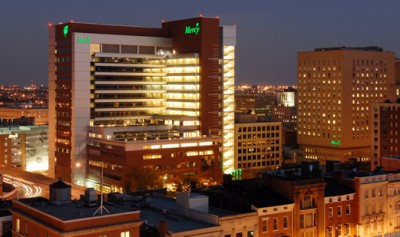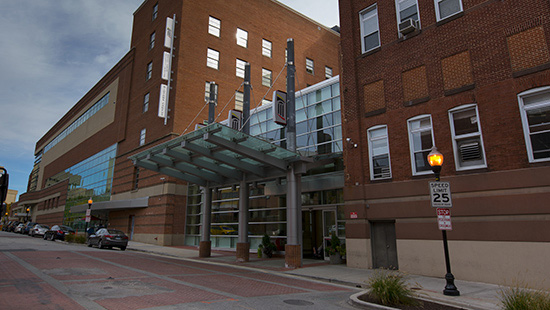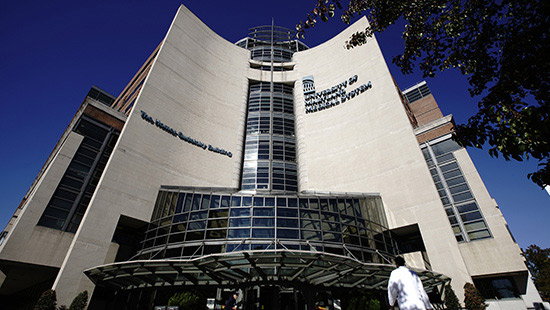First Year Rotation - Vascular Surgery Fellowship

Mercy Medical Center
A 183 bed private acute care university-affiliated teaching hospital founded in 1874 in downtown Baltimore by the Sisters of Mercy listed among Healthgrades 2020 America's 250 Best Hospitals. Located just 10 blocks east from University. Three full-time vascular surgeons operate there 5-days/week each, and run a clinic and vascular laboratory alongside two full-time PAs.
There is a hybrid OR and access to mobile c-arms as needed. Over 1000 endovascular and open surgical procedures are performed in the ORs annually. The most common procedures are peripheral extremity endovascular interventions, EVARs, open lower-extremity bypasses, hemodialysis access construction and maintenance, venous reflux treatments, and carotid endarterectomies and stenting.
Disease Team
UMMC Midtown Campus

Located 10 blocks north of the UMMC Downtown Campus, this hospital provides a unique community vascular experience, with fellows working closely, directly and independently with private cardiologists, nephrologists and general practitioners.
Currently, three faculty members have operative days and clinic at Midtown. There is a full vascular laboratory on site and support from two surgical nurse practitioners. The most commonly performed cases are peripheral extremity endovascular diagnostics and interventions, hemodialysis access construction and maintenance, and open lower-extremity bypasses.
UMMC Downtown Campus

You are primarily responsible for covering cases in the ambulatory Office-based Vascular Unit (primarily lower extremity arterial and venous diagnostic procedures and percutaneous interventions, and dialysis access maintenance). You also work with the second-year fellow to cover more complex, in-hospital surgical cases at UMMC Downtown Campus.
Since you are not responsible for managing the clinical service, the rotation provides dedicated time for reading and interpreting the required vascular non-invasive laboratory studies. You also have the opportunity to spend one afternoon a week in the vascular non-invasive laboratory alongside technicians to gain real-time exposure to the performance of these studies, and the chance to perform some of the procedures yourself. Fellows complete the supervised interpretation prerequisite for the APCA RPVI credential during the first year and sit for the examination before completing training.
This rotation also provides time to engage in any of the many clinical research projects underway in the Division. Fellows attend a weekly clinical research conference where projects are conceived, developed and shepherded through to completion in collaboration with medical students, residents, advanced practitioners and under direct faculty guidance and mentoring.
